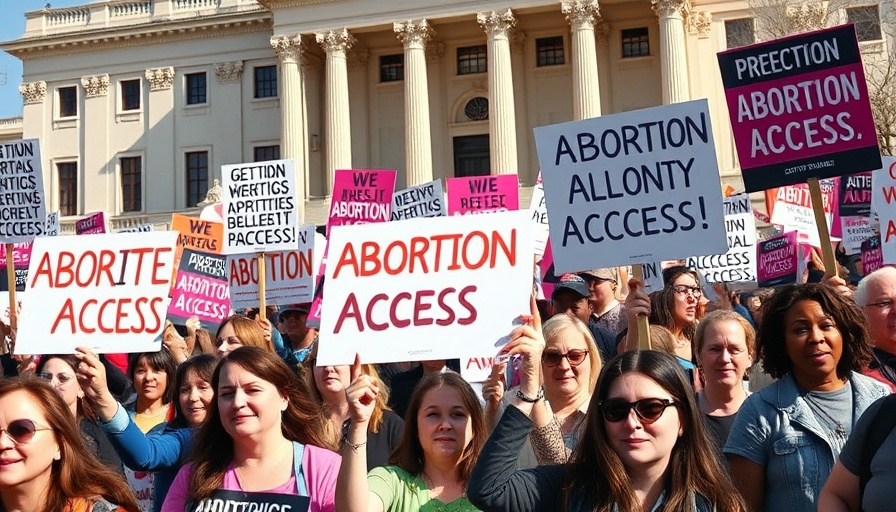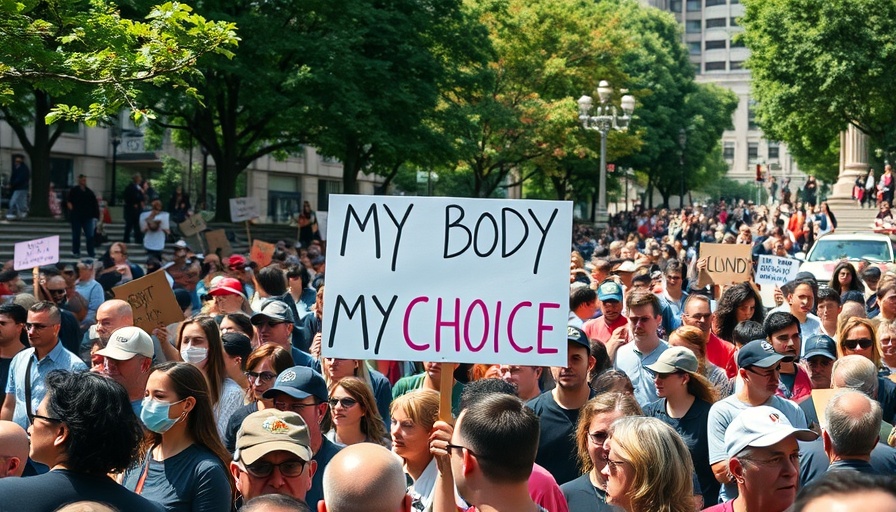
Understanding the Role of Shield Laws in Abortion Rights
In the ongoing debate surrounding abortion rights, shield laws act as powerful tools for progressive states seeking to protect their residents and healthcare providers from restrictive laws enacted in other states. These laws have gained traction since the Supreme Court's controversial decision in Dobbs v. Jackson Women’s Health Organization, which dismantled the federal protection for abortion rights established by Roe v. Wade. As states like California, New York, and Massachusetts implement these laws, they create legal safe havens for abortion services amidst a backdrop of increasing hostility toward reproductive rights.
The New York Case: An Early Test for Shield Laws
The recent case against Dr. Linda Prine offers a clear illustration of the tensions arising from these legal protections. Following Texas Attorney General Ken Paxton's successful lawsuit against her for prescribing abortion pills to patients in Texas, a New York clerk's refusal to file the judgment is significant. New York officials are poised to invoke the state’s shield law to defend Dr. Prine, asserting that it can protect providers from out-of-state legal actions. This case could reach federal court, setting a critical precedent regarding the jurisdictional power of state laws to defy enforcement efforts from other states.
Louisiana's Attempt to Challenge Shield Laws
Emerging conflicts surrounding shield laws are not limited to New York. In Louisiana, state officials are considering an unprecedented federal court move to extradite an abortion provider protected by another state’s shield law. If they succeed, it could mark the first time that federal courts are used to circumvent state sovereignty in abortion matters. Such attempts reveal a growing desperation among anti-abortion advocates to impose their legal frameworks across state lines, raising questions about the balance of power between state and federal jurisdictions.
Legal Tactics Used by Anti-Abortion Groups
Anti-abortion organizations are evolving their tactics to challenge shield laws through civil litigation. Texas Right to Life is preparing to file wrongful death lawsuits against abortion providers based on claims from individuals who allege their partners had abortions. These civil suits represent a new frontier in the battle over abortion rights, potentially allowing red states to undermine blue states' legislative efforts by exploiting the civil court system.
The Growing Role of Grassroots Organizations
In response to the rising challenges against abortion access, grassroots organizations like Plan C and SHERo play a crucial role in assisting patients facing obstacles in accessing medicated abortions. These groups not only provide critical information and resources but also serve as advocates for patients navigating the complexities shaped by restrictive laws. Their efforts reflect a community response to legal threats, emphasizing the need for continued support and advocacy for reproductive rights.
What Lies Ahead? Future Predictions on Abortion Shield Laws
As the legal battles surrounding abortion shield laws continue to unfold, it is likely that we will see increased litigation at both the state and federal levels. Courts may eventually be asked to clarify the extent of state powers concerning interstate cooperation and abortion services. The critical question remains: will shield laws hold up against aggressive legal challenges, or will they be dismantled, leaving many vulnerable options for reproductive healthcare?
For North Texans, understanding these developments is crucial as they navigate their rights and options in an evolving legislative landscape. Keeping informed and engaged in local advocacy efforts can make a significant difference in the fight for reproductive rights in Texas and beyond.
As we witness shifting conversations around reproductive rights, community involvement will be paramount. Encourage discussions, support local organizations, and advocate for access to essential healthcare services. Your voice matters in the ongoing dialogue about reproductive justice.
 Add Row
Add Row  Add
Add 




 Add Row
Add Row  Add
Add 

Write A Comment